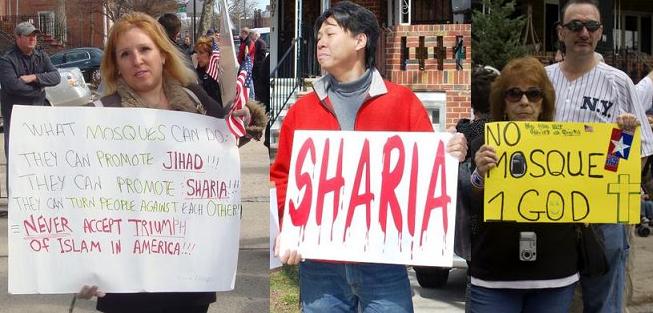
Sheepshead Bay mosque critics say it will lead to problems with traffic, parking and noise
Protesters who want to stop the construction of a mosque in Brooklyn’s Sheepshead Bay are bringing their case to court on Tuesday, the latest in a series of such disputes across America.
The nation founded on the principle of freedom of religious worship is seeing disputes from Tennessee to New York’s Staten Island, as Muslims wishing to build places of worship run into opposition – almost 10 years after the 9/11 attacks. The most high profile case was the Islamic centre to be built close to Ground Zero in Manhattan – now it’s the turn of what critics call the Brooklyn “mega-mosque”.
Opponents of the Sheepshead Bay development – who include blogger Pamela Geller, an influential critic of Islam – say it will dramatically alter the quality of life in a quiet, residential neighbourhood. Traffic, parking difficulties and the noise of the call to prayer will be disruptive, says the group suing to stop the construction, called Bay People. “The neighbourhood residents are mostly of Italian/Russian/Jewish/Irish descent and will not benefit from having a mosque and a Muslim community centre,” the Bay People website states.
But others accuse the group of a thinly-veiled anti-Muslim agenda.”They are using traffic and noise as this smokescreen for their bigoted agenda against the Muslim community establishing a mosque in Sheepshead Bay,” says Debbie Almontaser of the Muslim Consultative Network, a group advising Sheepshead Bay Muslims.
Ill-feeling has been further stirred by the death of Osama Bin Laden. While the Obama administration has taken pains to assert that Bin Laden was not a Muslim leader and that America’s war is “not against Islam”, a number of public expressions of anti-Muslim sentiment have since occurred around the US.
Almontaser says that since Bin Laden’s killing, the walls of the Sheepshead Bay property have been vandalised with graffiti that says “He is dead”.
